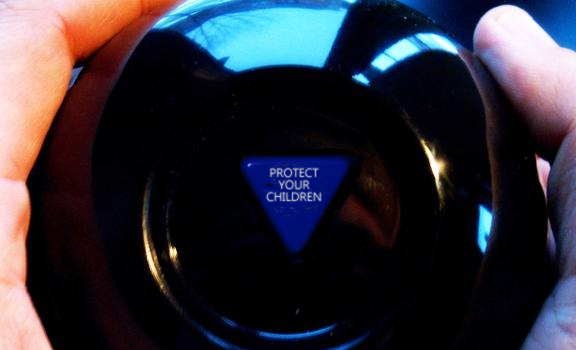37. Should Christians Enjoy Fantasy with Fictional Magic? Part 1
Podcast: Play in new window | Download (Duration: 59:01 — 55.4MB) | Embed
Our hero rides a broom. The sidekick turns his enemy into a toad. Then things get even dicier when another character talks with a ghost, or predicts the future. What’s a Christian fan to think about fantasy stories that include magic? Or creatures? Or (especially around this time of year) creepy and evil-looking creatures? How does Scripture actually warn us about the occult, and why?
Episode sponsor
Here’s a fantasy for middle-grade readers: Legend of the Storm Sneezer, from author Kristiana Sfirlea. Monster Ivy Publishing says this is “for fans of Doctor Who and the darkly whimsical.”
13-year-old Rose Skylar (rose SKY-ler) sneezed a magical storm cloud at birth, and it’s followed her around ever since. But when Stormy causes too many disasters, Rose is taken to an asylum for unstable magic in a haunted forest whose trees have turned to stone. Guided by time traveling letters, Rose teams up with her future selves and her (maybe) imaginary best friend to save her storm cloud and solve the mystery of the specters and the stone trees.
But will they find what killed the ghosts before what killed the ghosts finds them?
- Explore more at KristianasQuill.com.
- See listings at Amazon, Bookshop, Indiebound, and Barnes & Noble.
Concession stand
First, a word about expectations.
- We use “fictional magic” to mean made-up magic that doesn’t work in reality.
- We use “occult magic” to describe suspicious practices, likely forbidden to us.
- Also, this isn’t just about “mechanics of writing,” like magic systems or style.
- It’s about whether and why, not what or how, magic appears in fantasy.
 Second, we won’t dismiss the challenge as if only legalists would care.
Second, we won’t dismiss the challenge as if only legalists would care.
- Rather, this is an important challenge. It’s about holiness and obeying Jesus.
- If someone could show me that fantasy magic is sin, we must get rid of it.
- After all, Jesus got “harsh” by saying even offending limbs have got to go.
- Christians have many stories. Some of us know more about occult evils.
- Others know more about evangelical “white magic” practices or legalism.
- One may say to the other, “That’s not a problem!” when it really is.
- So this really, really calls for sensitivity, even awareness of sin-trauma.
Third, we will still view any experience or tradition according to Scripture.
- Reason: it’s Scripture, not experience, that should interpret all other stories.
- That includes our personal experiences and that includes our fictional works.
- One key idea I will assume going forward: sin comes from heart, not things.
- My key text here is Mark 7, when Jesus challenges the “food = sin” notion.
- The idea that sin comes from things can itself be pagan: occult-type thinking.
- By contrast, Jesus and the apostles teach about us redeeming gifts.
- They also teach (especially Paul) about sensitivity to those who are tempted.
- We’ll deal more with that in our second and third points about application.
- First, we must do some “deep magic” about magic warnings in the Bible!
 1. Fictional magic is everywhere, and more than we realize.
1. Fictional magic is everywhere, and more than we realize.
- This isn’t just about Harry Potter or Twilight controversies (from last decades).
- Christians often fail to realize that “magic” in stories can take many forms.
- We often lock all our deadbolts against stories with overt magical content.
- But we open doors to “the Force” of Star Wars or classic Disney fairy tales.
- You can call the story’s magic “science,” “superpowers,” or “alien abilities.”
- But it’s still indistinguishable from magic. In practice, it’s all just magic.
- Space doesn’t permit a full exploration of fictional magic.
- But we can try to focus on what many discernment materials don’t:
- What magic, exactly, does Scripture warn about and why does it warn us?
2. Scripture warns against real occult practices that result from idolatry.
- Our key text is Deuteronomy 18, the prime Old Testament warning.
- It helps to read the whole thing, not just verses nine through twelve.
- There’s more in here than a focus on pagans doing pagan things.
- When we step back we see God focusing on Israel’s leadership and worship.
- Deut. 18 continues last chapter’s instructions about these crucial themes.
- Deut. 17: trials for individual sin, priest and judge discernment, future king.
- Deut. 18: God specifies how his people should support the order of priests.
- For now, the priests are God’s special class of “mediators” for Israel.
- That’s the context for why God moves to a darker topic: fake mediators. Idols.
Briefly, let’s go verse by verse in Deuteronomy 18:
“When you come into the land that the Lord your God is giving you, you shall not learn to follow the abominable practices of those nations.”
- First we read this as they would have read it, with their context, not ours.
- “The land is yours but it’s a bad neighborhood. Don’t copy your neighbors.”
- Next we apply this truth to us. In some way, we get covenant promises.
- Some neighbors are bad. We have an inheritance in the future and gifts now.
- Because the New Testament repeats warnings against sorcery, let’s listen!
- (Meaning: this is probably different from warnings about certain animals.)
“There shall not be found among you anyone who burns his son or his daughter as an offering,”
- For them: Don’t practice literal human sacrifice! It’s an abominable practice.
- For us: Treat the image of God with the utmost respect. Life is sacred.
“anyone who practices divination or tells fortunes or interprets omens, or a sorcerer or a charmer or a medium or a necromancer or one who inquires of the dead, for whoever does these things is an abomination to the Lord.
-

One episode of the classic sitcom “I Love Lucy” portrays a divination-seeking séance for laughs.
For them: All these are false and blasphemous ways to seek God’s future.
- Divination: attempting to foretell the future. Fortune-telling: the same.
- Interpreting omens, sorcery, charming, summoning the dead: the same.
- If you want to know futures, you want to control reality on your own terms.
- The chief sin here seems to be a single sin: divination, fortune-telling, control.
- This is idolatry: you’re trying to be like God, stealing his authority from him.
- Even if we don’t do that stuff, we struggle with idolatry. (Cf. last session.)
- Especially in hard times, we want to know the future. We want to have power.
“And because of these abominations the Lord your God is driving them out before you. You shall be blameless before the Lord your God, for these nations, which you are about to dispossess, listen to fortune-tellers and to diviners. But as for you, the Lord your God has not allowed you to do this.”
- For them: OT Israel will be used by God to punish these chronic offenders.
- For us: The Church doesn’t do this like Israel did, but we do wait judgment.
- God is “driving … out” evil in the world, but now in slower, powerful ways.
- We expect pagans to pagan, but we also humbly confront it among us.
3. Don’t stop there! Instead, behold the Final Prophet!
- This is just where we shouldn’t stop! Because God, through Moses, goes on.
- Otherwise we may conclude only with: Guess we can’t know the future …
- Nope. God still wants to talk about mediators. Those are false ones! But …
“The Lord your God will raise up for you a prophet like me [Moses] from among you, from your brothers—it is to him you shall listen …”
—Deuteronomy 18:15
- For them: God will reveal the future in His own way, including prophets
- But best of all, those people need to watch for a coming final Prophet.
- That is the exclusive way He will give any further revelation to OT Israel.
- I really want to talk about Jesus and prophet qualifications. Moving on …
- The point is that this passage isn’t just about occult evils. It’s about Jesus!
Notice what God doesn’t say in these passages (but do Christians say this?)
- God does not address the issue of anything else labeled “magic.”
- He does not answer if these pagan strategies actually work.
- He does not talk about whether they summon Satan or demons.
- Here, at least, God is not interested in these topics.
- He only gives one motive for people: their holiness in worship for his sake.
“You shall be blameless before the LORD your God … the LORD your God has not allowed you to do this” (verses 13–14).
- He wants them to reject false assurance via divination and occult evils.
- He alone is Prophet and the perfect King/Priest to whom we must listen!
Fantastic fans
Stephen L. Rice sends this comment:
I would like Burnett (or any other superhero fan) to respond to https://www.youtube.com/watch?v=d6YsDwg0HiY (Is Superman Still Relevant Today?). The YouTuber who produced it isn’t a Christian, but his insight into the modern trend to degrade heroes and exalt villains is amazing!
(Stephen Burnett replies with a quote from another superhero in another universe.)
Next on Fantastical Truth
Now that we’ve explored Deuteronomy 18, with God’s most famous warning against occult practices, this raises questions. What if people claim that fictional magic does makes them sin, or “stumble”? And, if we aren’t tempted by fantasy magic, how do we care for those who do? It just gets more complicated here in the deep-magic end.































Share your thoughts about this podcast episode